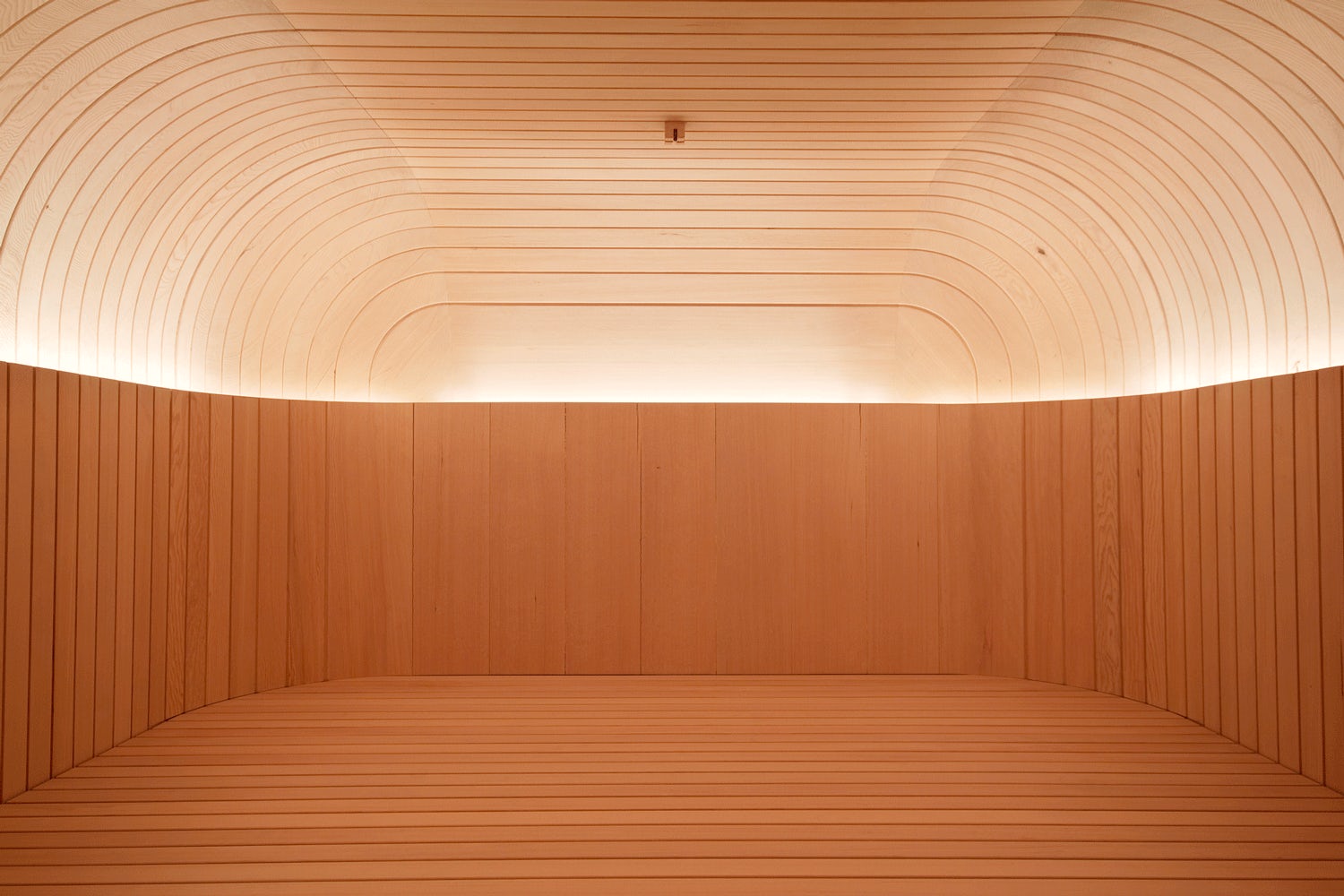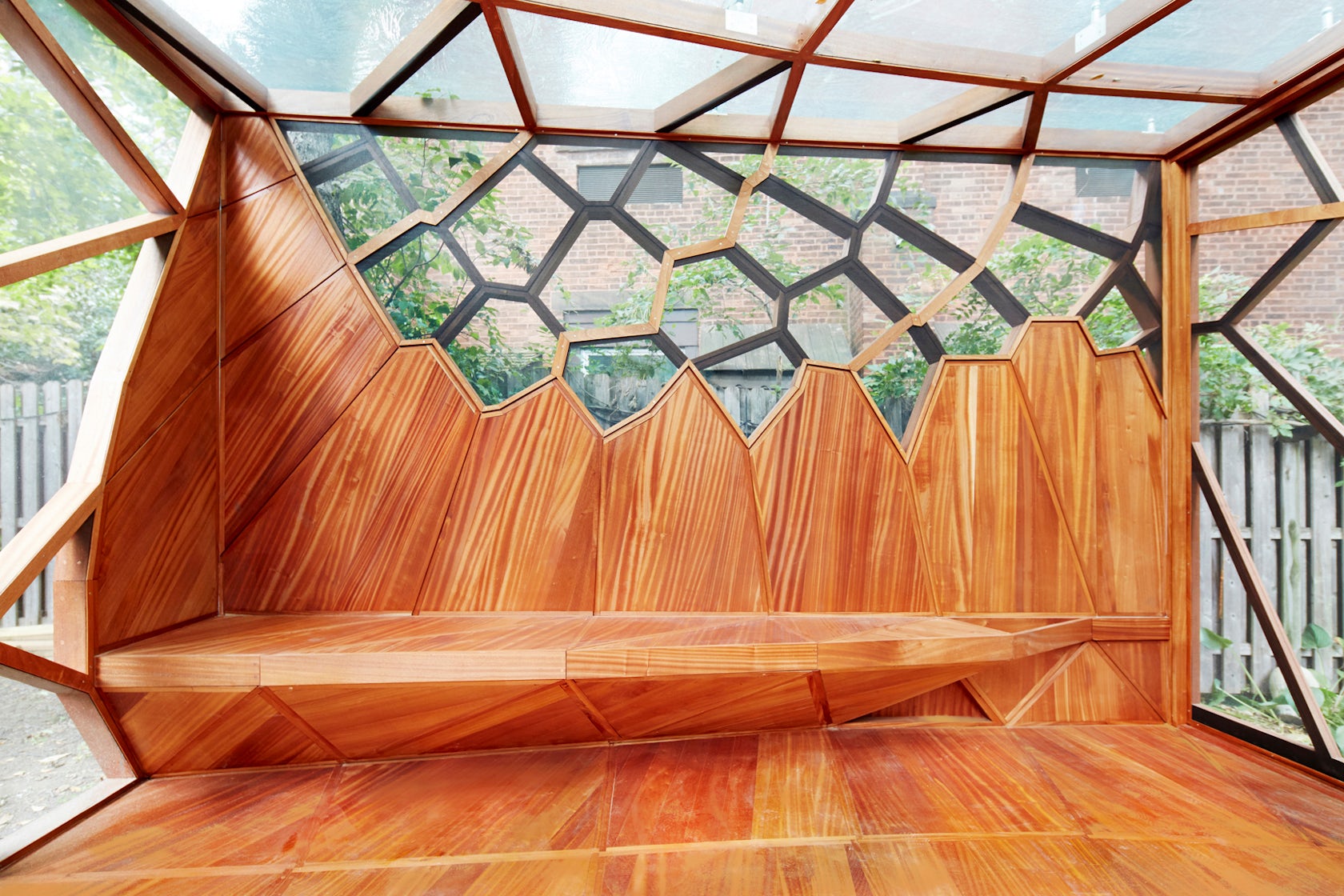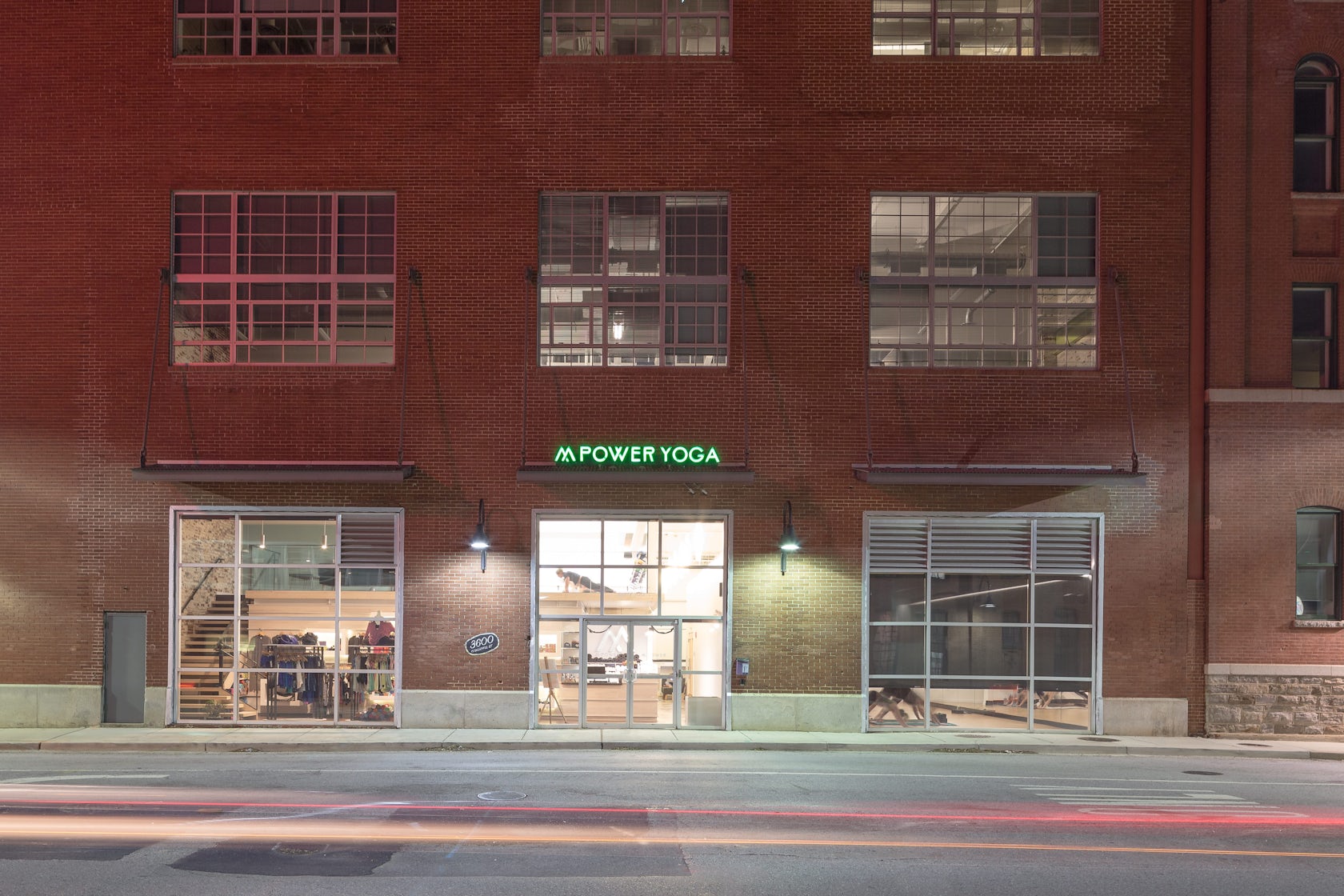Architects who have never heard of downward dog, you heard it here first: Yoga is a growth industry, hungry for new gyms and private workout spaces.
According to one recent survey, 24 million adults in the U.S. practiced yoga in 2013, compared to 17 million in 2008. Thanks to the proliferation of yoga DVDs and the spread of instructor-led sessions to gyms everywhere, the practice is no longer confined to boutique yoga studios. Its popularity has grown so quickly that space is at a premium: one high-end establishment in California allows members to reserve a single mat space in packed classes.
So there an ‘architecture of yoga’? While the physical movements of yoga require little space or equipment, a major aspect of the practice’s appeal is its meditative and relaxing aspect. Less an intense workout and more mental and physical therapy, the sense of mindfulness and overall well-being can be amplified and accentuated by one’s surroundings. From renovated 16th-century chapels to private wilderness cabins and chic spas, here are the best of Architizer’s spaces for yoga.

© David Chipperfield Architects, 4SeasonsSpa

© David Chipperfield Architects, 4SeasonsSpa
Cafe Royal, Akasha Holistic Wellbeing Centre by David Chipperfield Architectsand 4SeasonsSpa
The posh Akasha Holistic Wellbeing Centre, located within London’s Hotel Café Royal, features four separate areas where program is strongly linked to aesthetic: “spa/water, gym/fire, yoga/air and organic bar/earth.” In practice, this means the atmosphere of each space is defined by a rich material palette. For example, the turkish bath is outfitted in Carrara marble. The sauna, seen above, combines hemlock wood and an elegantly lit dome to engender serenity and isolation.

© CDR Studio Architects, PC

© John Muggenborg Architectural Photography
Dragonfly Pavilion by CDR Studio Architects, PC
You don’t need Carrara marble to perfect your asanas. Inspired by the structure of butterfly wings, this pavilion was built behind a four-story townhouse with a range of activities in mind: dining, outdoor sleeping, and of course, yoga. Digital modeling featured prominently in determining its final form, with stress analysis shaping the structure’s geometry. Mesh screening fills in the mahogany cells and the entire structure is shielded by rain by a glass canopy above.

© Adam Bresnick Architects

© Adam Bresnick Architects
Restoration and Adaptation of a 16th century Chapel: an Event Space by Adam Bresnick Architects
Sometimes medieval spaces of contemplation and spirituality can be readily adapted to contemporary use. Some 500 years old but abandoned in 1969, this chapel was repurposed for a variety of activities that range from yoga classes to formal wedding receptions. The space seen above cantilevers above the middle third of the chapels. Yogis can look out to the main dome through pine bars.

© Peter Rose + Partners

© Peter Rose + Partners
The Annex at The Kripalu Center for Yoga and Health by Peter Rose + Partners
Located in the Berkshire Mountains of Massachusetts, this yoga center and retreat is functionally and materially linked to its landscape around it. The architects describe how its cypress rain-screen will weather over time to a natural grey, helping the building meld into the surrounding forest. Natural ventilation and movable sunscreens, along with a host of other features, let the building breathe and minimize energy usage. One yoga space, seen above, is flanked by windows on both sides, opening it to the outdoors.

© JOHN GRABLE ARCHITECTS

© JOHN GRABLE ARCHITECTS
Music Box by JOHN GRABLE ARCHITECTS
Doubling as a venue for yoga and music, this small structure hovers over the ground near a tributary of the Guadalupe river in Texas. The cabin’s acoustics were carefully calibrated but the space isn’t hermetic: two folding glass walls open to the surrounding cypress trees. Much like the previous project, but here on a personal scale, a connection to the environment is crucial. In a final gesture, the cabin’s floors and walls are reclaimed cypress.

© Robert Mills Architects

© Robert Mills Architects
One Hot Yoga by Robert Mills Architects
Not all yoga studios can opt for the Texas wilderness or a 16th-century chapel. Housed in a old Melbourne factory, this studio accents its brick walls and concrete floors with monochromatic colors and a large timber table in the foyer. Neither exuberant or somber, the formerly industrial space is minimal and calm.

© Brett Gullborg

© Brett Gullborg
Yoga isn’t just affected by lighting and material palette: Acoustics can be critical. This yoga studio uses live music during classes, adding an extra challenge for the architect. The solution was a wood ceiling that absorbs sound and increase clarity, much as a concert hall might.




